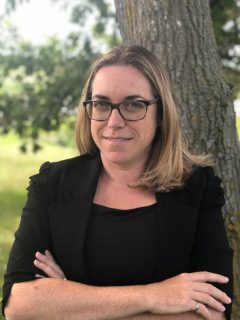Past Event! Note: this event has already taken place.
Biology Seminar Series: Dr. Lindsay Beaton
March 3, 2023 at 2:30 AM to 3:30 AM
| Location: | 4440Q Carleton Technology and Training Centre |
| Cost: | Free |
| Audience: | Anyone |
Title: Biodosimetry at Health Canada: development of updated methods for individual and high-throughput analysis
| Dr. Lindsay Beaton
Health Canada Friday, March 3 at 2:30 p.m., CTTC 4440Q Coffee will be available at 2:00 p.m. Everyone is welcome! |
|
Abstract:
Biodosimetry estimates the dose of ionizing radiation to which a person or population may have been exposed using measured biological endpoints. Health Canada typically generates an X-ray equivalent dose-response calibration curve based on these measured endpoints. Several assays are available and well-characterized to measure cellular or subcellular damage (i.e., dicentric chromosome assay (DCA), cytokinesis-block micronucleus assay (CBMN), translocation assay (FISH) and the phosphorylated gamma-H2AX assay (γ-H2AX)) and have traditionally been analyzed by manual microscopy. The creation of calibration curves, and individual analysis using traditional methods is time-consuming, laborious, and not well-suited for emergency response in the case of large-scale radiological or nuclear events.
Advances in technology and software have since facilitated increased automation of these assays, and there has been progress in modernizing the assays accordingly. The imaging flow cytometer (IFC), a combination of a flow cytometer with imaging capabilities, is an example of one such technology. The CBMN assay has been adapted to the IFC (CBMN-IFC) such that processed blood samples are automatically acquired by the IFC, imaged, and analyzed with minimal user intervention. New dose response calibration curves have been generated and tested to validate the assay. Additional work is now being done to similarly adapt other biodosimetry assays.
This seminar will present an introduction to biodosimetry, its various applications at Health Canada, and the modernization of the assays done to date. Additionally, the research possibilities for future work will be highlighted.
Bio:
Lindsay Beaton, a graduate of Carleton University’s Medical Physics program, is a Research Scientist in the Consumer and Clinical Radiation Protection Bureau (Health Canada). Her current research interests are on the human health effects of exposure to ionizing radiation. Interesting projects include analyzing blood from Canadian astronauts for cell damage, and developing modernized tools to assess this damage. She is passionate about mentoring students and building multi-disciplinary collaborations.
